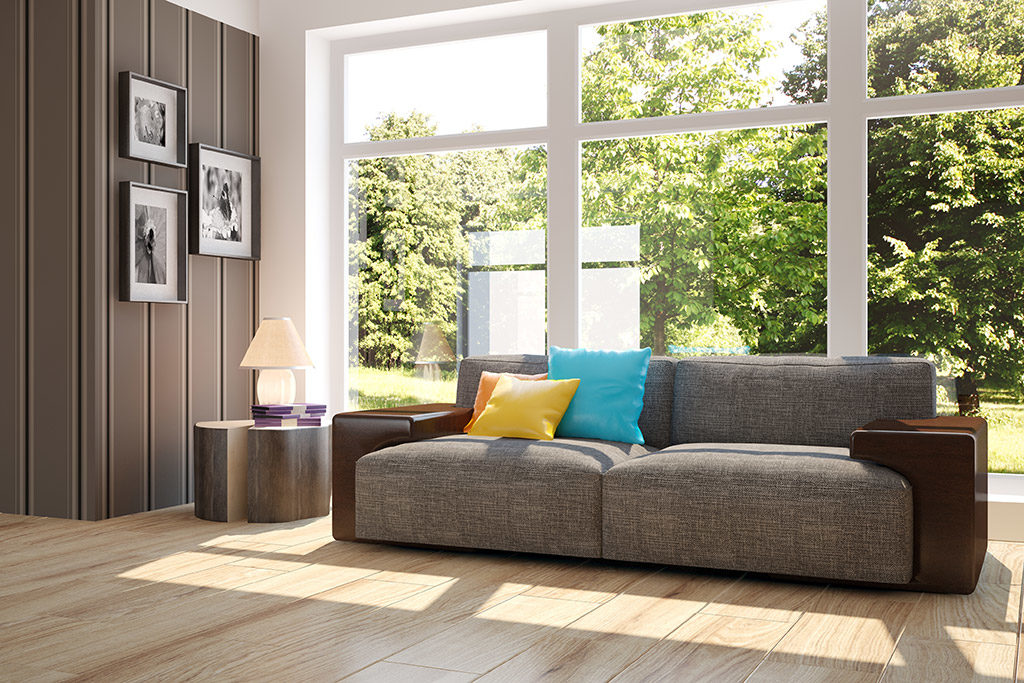
Understanding the Performance of Windows in Colleyville, TX
Thinking of buying new windows in Colleyville, TX? Before you do so, let’s try and understand how a typical window performs. We’ll be talking about how a window gains energy from sunlight and how heat losses occur when the days turn colder.
Factors that affect gain
The ability of a window to capture heat from the sun, referred to as solar gain, depends on four main factors.
- Placement
- Window design and opening
- Glazing
- Interior and exterior shading
Placement and Orientation
The primary factor determining solar gains is the orientation and placement of your window. Whatever directions windows in Colleyville may be in, mostly some amount of gain is still possible if the windows aren’t covered by blackout blinds.
Considering the winter season, the sun’s elevation is lower, which allows the rays to shine through all windows facing the south. If your window has been placed the same way, the resulting solar gains will help bring down your energy bills. During the summer season, the sun’s elevation is higher up in the sky at midday. The south facing windows then only capture few rays, and among these, most of the rays are reflected back because of the small angle. Solar gains are already lower, and they can be further decreased by installing an eave overhang or awnings. Placement of these shades is again a key, which must be such that the high winter gains aren’t affected.
So which windows in Colleyville get the maximum solar gains in summer? West facing windows obtain the maximum gains, and east facing windows in Colleyville also get noticeable ones. Shade the windows well, and you can prevent your home from overheating. Trees can also help you reduce the heat, but they should be well placed so that winter solar gains are still desirable.
Design
Design is another factor which determines the heat capturing ability of windows in Colleyville. A window may have a large pane but if it’s separated by muntins and mullions, the glazing area deceases implying that the window captures less solar heat than without the design elements. On the contrary, another window of the same size and frame thickness, but without any muntins, will allow more sunlight and hence, more heat to pass inside because of the bigger glazing area.
Glazing Layers
Generally, windows in Colleyville have single, double and triple layers of glazedglass. A double glazed window captures 10% less solar gain than a singleglazed window with the same glazing area. A triple-glazed window reduces gains by around 10%. These stats hold true if ordinary window glass is used; energy efficient glass may have different ratings.
Tints and coatings also affect the performance of windows in Colleyville. Clear glass captures the maximum solar heat. If the glass is tinted with an insulating low-E coating, solar gains decrease significantly. For double glazed windows having the same glazing area, solar gain is reduced by around 20% if the window features a low E coating on one side. Low-E coatings are available in several types, which also affects the overall window performance.
Shading
Windows in Colleyville can be shaded using curtains, drapes and blinds on the inside. From the outside, trees and other landscape elements may be used for shades. During the summer days, drapes should be kept open to allow maximum solar gain, whereas they should be pulled close when the days are cold.
If you are using trees for shade, then select species with thin branching. During summers, they would provide adequate shade, but in winters, they would allow sufficient solar light to pass through when the leaves fall down.
Factors affecting heat losses
The amount of heat lost through windows in Colleyville is also dependent on several factors. But in each and every case, the basic heat law applies: heat traverses from a warmer region to a colder region. No technology can reverse this, but several means can be used to increase or decrease transfer rates.
Heat losses are affected by
- Radiation, convection and conduction
- Air leakages
Radiation, convection and conduction
Radiation, convection and conduction are the main heat transfer processes. Consider a double glazed window. Heat is absorbed by the inside pane and is then passed to the outside pane which is cooler. This loss occurs across the glazing area and the window space separating the glazing layers. In the former case, heat transfer takes place through radiation, and in the latter, through conduction. Heat loss also occurs when air moves through the empty space between the two glazed layers (convection) and betweenmoveable frame components (air leakages).
For standard windows in Colleyville, radiation losses make up around 66% of the total heat losses. If emissivity of the glass is lowered, referred to as low-E glass, losses are reduced.
Conduction losses can be mitigated by using good insulators for the frame. Convection losses can be decreased by ensuring that the space between the two pains are separated by a distance of 12 mm to 16 mm. Filling up this space with gases like argon and krypton also decreases losses.
Air Leakage
Air leakage contributes to your energy bills round the year. As already explained, most of the leakage takes place through operable window components such as the frame and sash. If the windows are bigger, the leakageper unit area is lower. The best way to reduce air leakage is to go with fixed windows, but then you won’t be able to open them. Considering operable windows in Colleyville, casement and awning styles minimize air leakages the most. Good installation, of course, is another way to prevent leakages. The space between the frame and opening should be properly sealed and insulated before installing the window trim.
Balancing solar gains and heat losses
What’s the best way to balance heat gains and heat/air losses? Get your windows designed, installed or replaced by the leading window installers in Colleyville. Reach out to us at Energy Window Solutions, and we’ll ensure your windows in Colleyville perform well round the year, regardless of how bright or subdued the sun in.


